
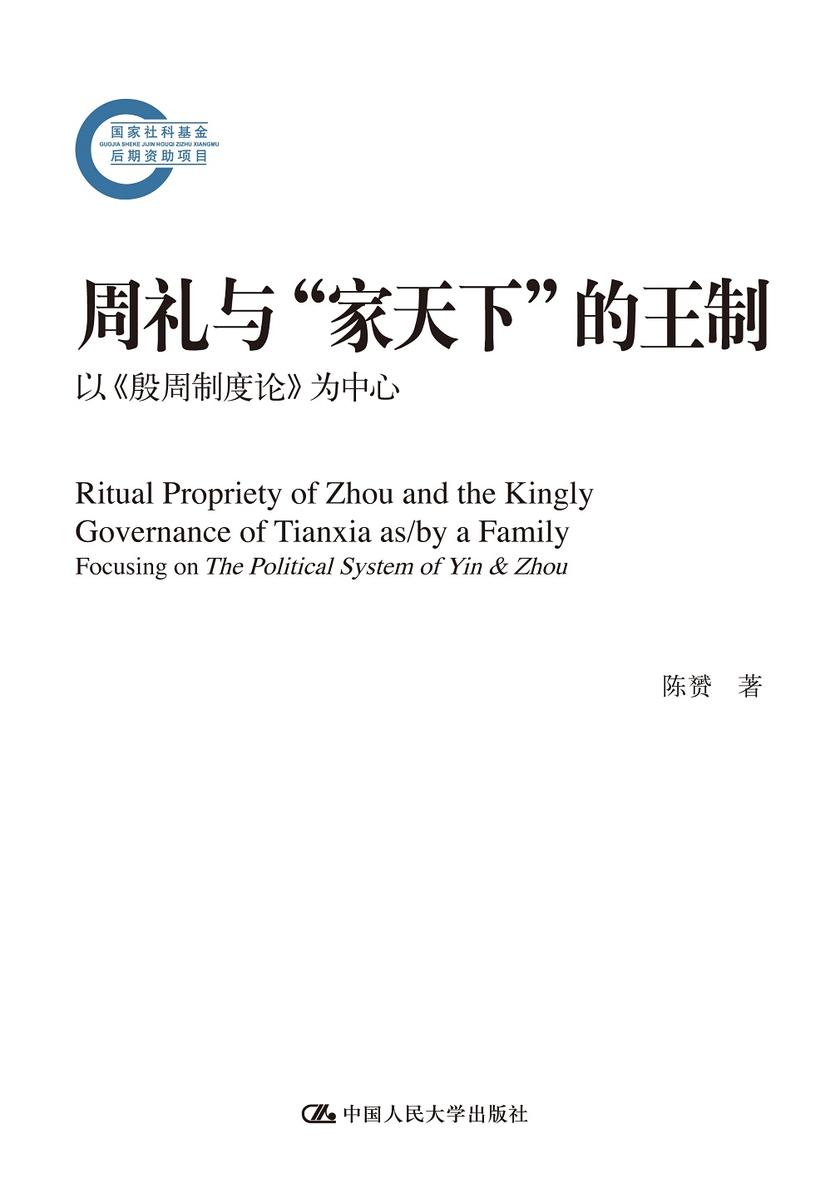
周礼与“家天下”的王制:以《殷周制度论》为中心(国家社科基金后期资助项目)
¥47.40
王国维自视其《殷周制度论》为经史二学上的大文字,但其藏经学于史学的路一再被遮蔽。本书由史而经,由王国维而上及历代诸儒,对西周王制要素的继统法、封建、?E礼,尤其是宗法等,行了翔实而具有系统的阐发,试图在规模、广度与深度上呈现西周王制的几本架构、制度基础、精神原则和理念根基。本书的特色在于:基于经史之学的路,立足于儒家思想的大视野,对西周王制做了别生面但又根植于经典的诠释,尤其是对继统法、宗法等行了集大成性的研究,对《殷周制度论》与三代王制的理解提供了新的可能路,也为中国思想的起源的研究提供了恢宏的视野。


逻辑哲学研究
¥47.40
本书是《逻辑哲学导论》(中国人民大学出版社,2000)一书的增订本。根据引用率排名,曾被列入“有影响力的48本中国哲学著作”之列。本书系统地探讨了如下12个论题:什么是逻辑哲学,意义理论和逻辑类型,摹状词和名称理论,“是”(to be)的逻辑哲学分析,推理、后承关系和蕴涵,形式化方法的哲学考察,模态的形而上学,逻辑真理的性质,逻辑悖论的反思,归纳问题及其解决方案,逻辑中的本体论承诺,逻辑究竟是什么。书末以作者近十年所发表的有关逻辑哲学的5篇重要论文作为附录。

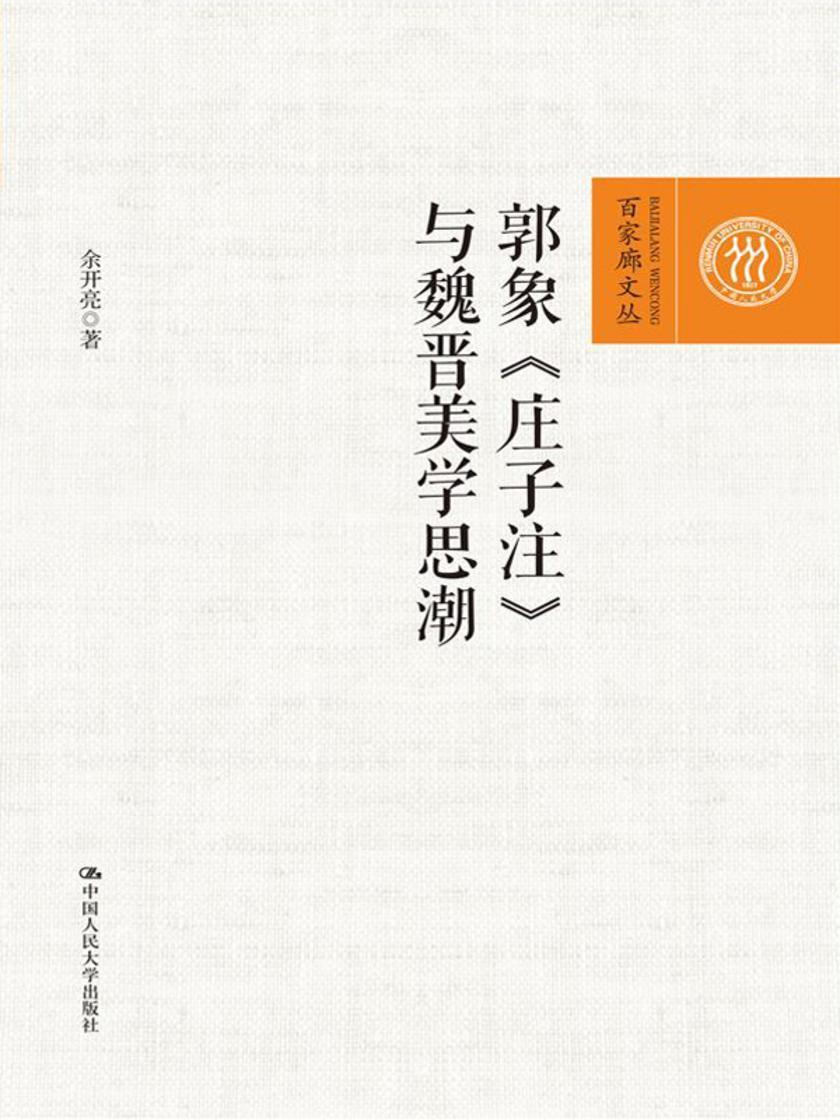
郭象《庄子注》与魏晋美学思潮
¥47.40
郭象《庄子注》作为玄学理论的集大成者,在魏晋时代具有"思想熔炉""课题聚焦""思维经纬"的理论地位。郭象《庄子注》把庄子思想现实化、具体化为一种人生实践与处世精神,对中国美学和艺术新变影响深刻。《庄子注》一书,堪称魏晋诸多美学形貌的理论写照、哲学根据。本书以郭象《庄子注》为核心文本,在具体阐释郭象哲学思想的基础上,提炼了其内在的美学意蕴。在一种前后美学语境的转换历程中,本书细致而具体地架构了郭象哲学与魏晋美学思潮之间的深度关联,以确立郭象及《庄子注》在中国美学史上的历史地位。

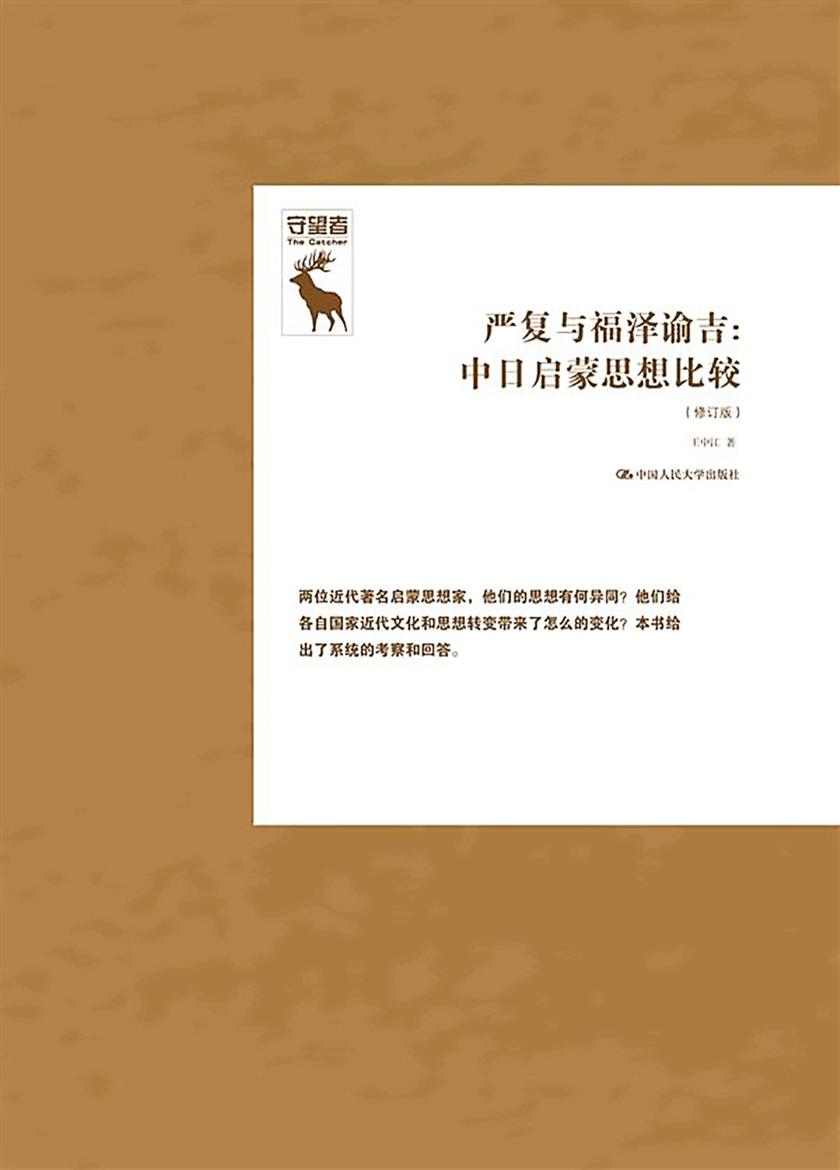
严复与福泽谕吉:中日启蒙思想比较(修订版)(守望者)
¥47.40
在中日启蒙思想这一主题下,本书以历史的纵向变化和时代的横向关联为坐标,以严复与福泽谕吉这两位中日近代具有代表性的启蒙思想家为中心,分列时代篇、文化篇、思想篇和实践篇,从不同的方面和维度,系统地对中日近代启蒙思想行了透视和比较,呈现了两位启蒙思想家的复杂图像、相通性和独自性,作者在不少问题上都提出了自己的见解和观,是一部较早展中日启蒙思想比较的学术专著。

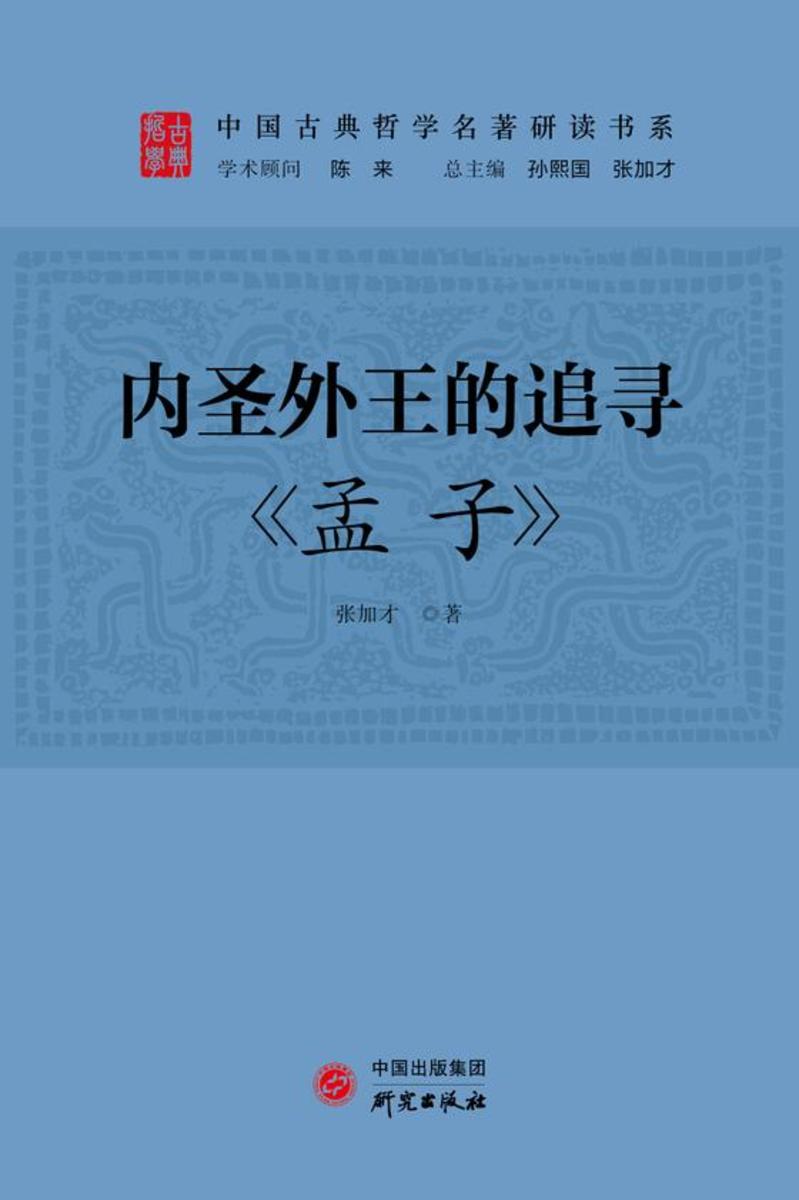
内圣外王的追寻:《孟子》
¥47.40
孟子是儒家学派的重要代表人物,其内圣外王思想成为中国优秀传统文化的重要内容。《孟子》一书是孟子的言论汇编,由孟子及其弟子共同编写而成,记录了孟子的语言、政治观点和政治行动。孟子师承孔子之孙孔伋的弟子,继承并发扬了孔子的思想,成为一代儒家宗师,常与孔子并提,人称“亚圣”。“居仁由义,大人之事备矣。”通过注释、译文、品评,《圣王之道》深刻阐释了孟子的思想及其现代意义。

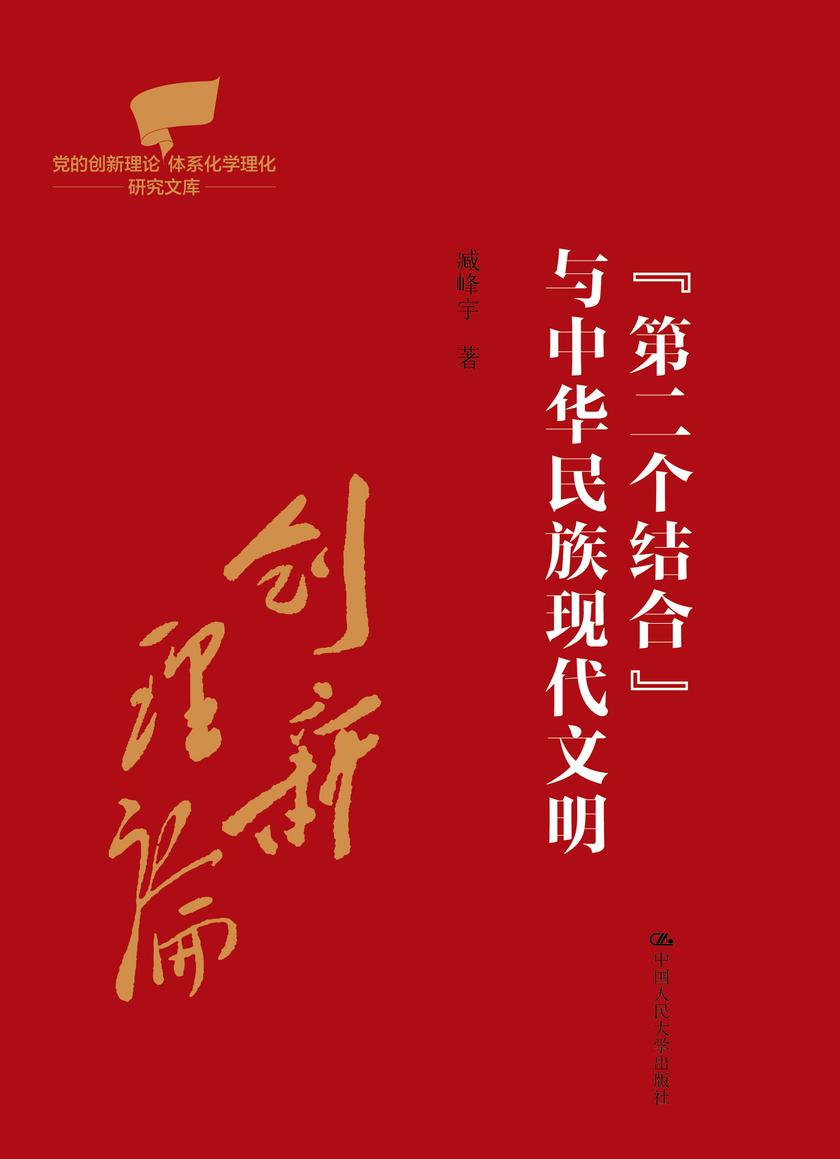
“第二个结合”与中华民族现代文明(党的创新理论体系化学理化研究文库)
¥47.40
本书是一部解析“第二个结合”与中华民族现代文明的哲学读本。通过解读马克思的现代性思想与中国式现代化的实践逻辑,把握马克思主义哲学中国化的文化语境,本书以唯物史观探究“第二个结合”的内在机理,论述破解“古今中西之争”的思路与方法。在把握中国式现代化的文明底蕴和世界历史意义的基础上,作者深论述了中国式现代化的文化形态与中华民族现代文明的历史逻辑、理论逻辑和实践逻辑,分析了中国特色社会主义文化发展的基本结构,阐明了坚定文化自信的历史传统与时代品格。以建构中国自主知识体系的文化自觉,本书探究了构建人类命运共同体的文化合力的理论资源,探析了秉持实现中华民族伟大复兴的文化使命,阐述了建设中华民族现代文明的学理内涵。

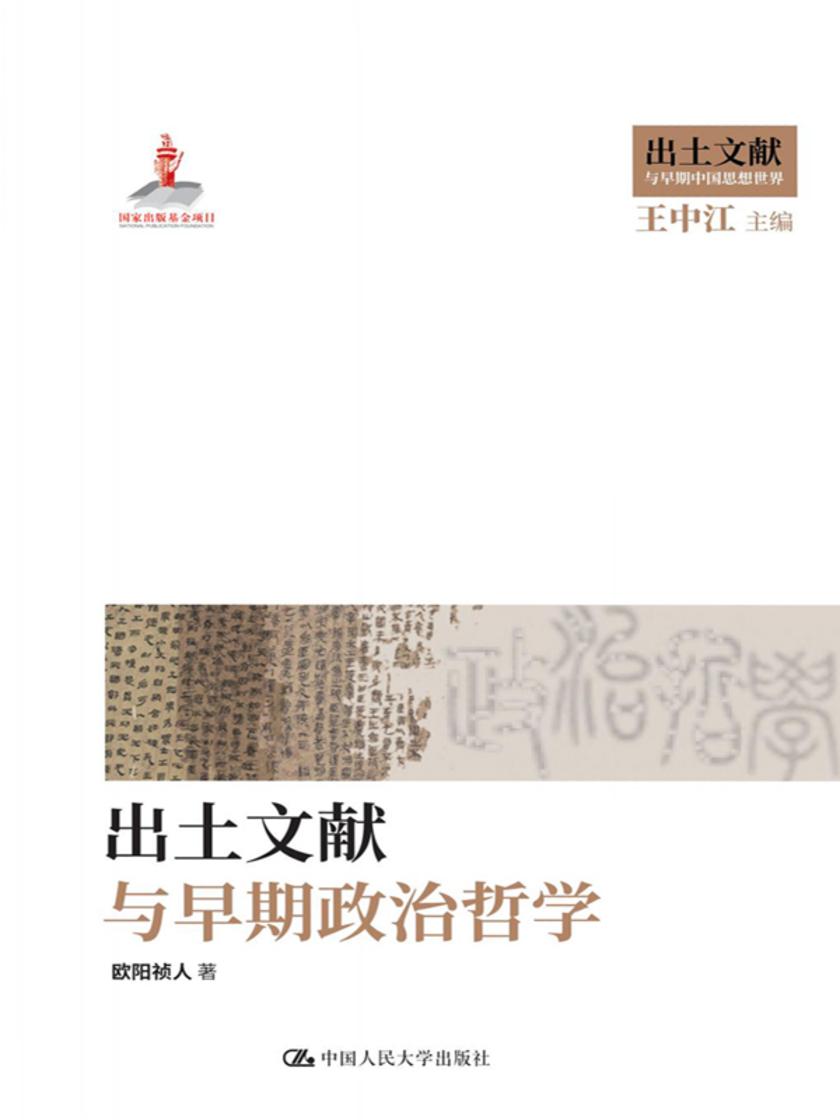
出土文献与早期政治哲学
¥47.40
先秦原始儒家的政治哲学思想是我们现代政治生活中的一种重要资源。这种资源与我们的民族精神相依为命,甚至不可或缺。我们应该正视它在现代社会中的价值和作用。在目前的国际国内形势下,汲取先秦儒家的政治理念,*学习、涵化全世界优秀文化,融会贯通,负阴而抱阳,充气以为和,建立一种全新的、涵容中西文化精华的、适合中国历史文化现实的当代中国政治体系,是我们自立于世界强国之林的必由之路。 本书打通了传世文献与新近出土文献资料的阻隔,在心性学与政治哲学的交融互动中,考镜源流、明统知类、察势观风而知人论世,阐幽表微地展现了先秦时期儒家思想的深厚底蕴和现代价值。作者认为,先秦儒家具有独特的思想史意义和社会影响力,是中国思想、中国精神、中国风格、中国价值的集中体现,通过客观冷静的研究、汲取和现代重塑,达到古为今用之功效。在与先秦诸子百家的比较之中,在儒释道的进一步摩荡和磨砺之中,在与西方各种思想的碰撞和涵化之中,先秦儒家的政治哲学和心性理论得到现代性的锤炼和洗礼,将成为实现中华民族伟大复兴的重要资源。

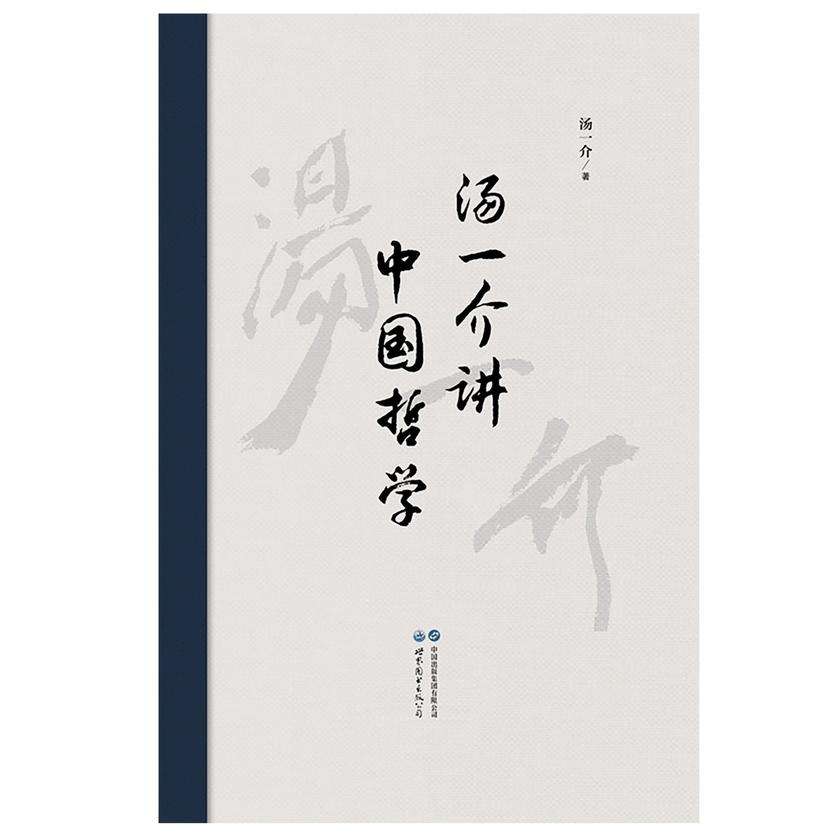
汤一介讲中国哲学
¥47.40
本书是汤一介自选集,汤一介(1927年2月16日—2014年9月9日)是中国当代著名哲学家。全书选取他自1982至1998年作者发表的有代表性的二十四篇论文,这些论文代表了他在*十年代所思考的主要哲学问题和文化问题,是汤一介学术研究一个关键阶段的总结。书中集中讨论了中国哲学的概念和命题,儒家哲学的宇宙人生论、价值理性论、道德教化论,对道家、道教和中国佛教的研究,对我国*十年代文化走向所作的评论等。汤一介所处的时代是思想解放、打破禁锢、从封闭走向开放的时代,是中西文化激荡、社会大变革、思想范式发生转型的时代,本书彰显了汤一介先生的学术研究和哲学思考是如何随着这个时代的脉搏一起跳动和起伏的。
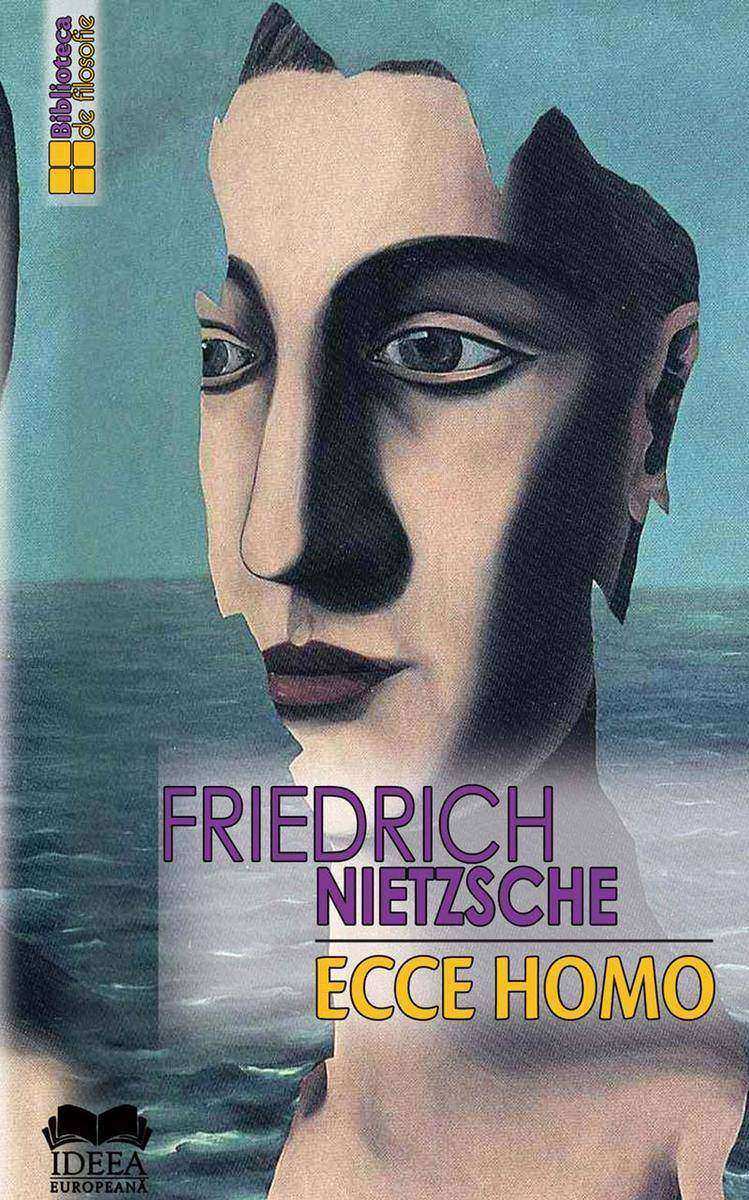
Ecce homo. Cum devii ceea ce e?ti
¥47.42
n Filosofia meritului autorul folosete metoda fenomenologic pentru a prezenta evoluia instituiilor socio-morale care reglementeaz meritele; autorul propune n acest scop concepte originale, cum sunt ideonomia (sistemul de idei care fundamenteaz teoretic un sistem de apreciere a meritului); socionomia (sistemul de reguli care legitimeaz social un merit specific unei comuniti) i politonomia (sistemul de norme prin care se instituionalizeaz juridic meritul politic).Tratatul de Filosofie a meritului este structurat n trei pri corespunztor celor trei domenii existeniale n care se manifest fiina uman, spiritual, social, politic. Lucrarea prezint n extenso criteriile, principiile i formele de manifestare a meritului, premisele constituirii sistemelor sociale de apreciere a meritului, natura bio-psihic i socio-moral a meritelor precum i caracterul normativ al meritelor politico-juridice. Prima parte abordeaz sfera meritele cu caracter antropologic, antroponomic i antropocratic. Partea a doua prezint n extenso meritele cu caracter sociologic, socionomic i sociocratic i partea a treia analizeaz formele de manifestare a meritului din perspectiva politologiei, a politonomiei i a politocraiei. n fiecare capitol se regsesc argumente logice, etimologice i sociologice care justific aprecierea unor atribute i caliti umane ca merite individuale. Fiecare din cele douzeciiapte de capitole explic un tip de merit din tripl perspectiv: ideal social i politic.

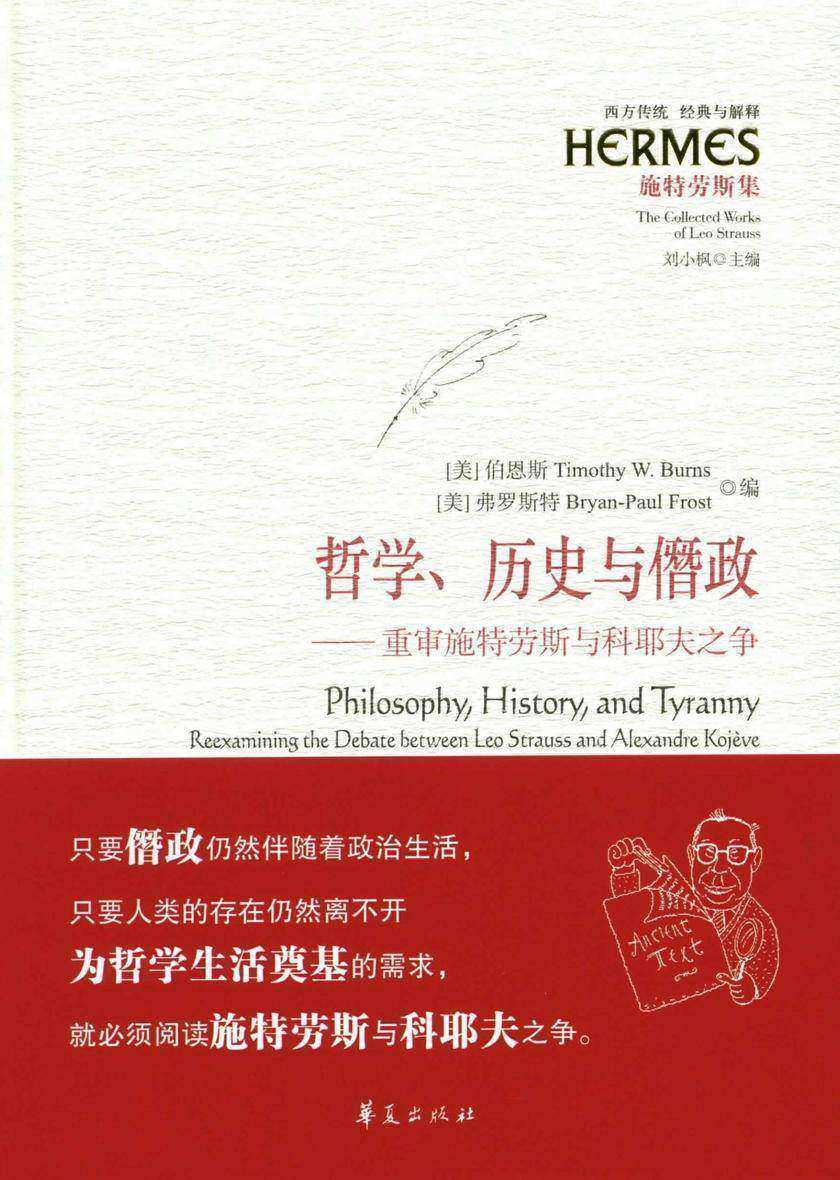
哲学、历史与僭政:重审施特劳斯与科耶夫之争
¥47.50
倡导回归古典政治哲学的施特劳斯与法国新黑格尔主义的重要代表人物科耶夫,两人关于色诺芬《希耶罗》一书的“哲学对话”,无疑是一场古典政治哲学与现代哲学在现代西方政治思想史上举足轻重的思想交锋,至今于学界经久不衰,鲜有哲学的或学术的讨论能够如此。本书将批判性地重审整个论争,所录文章作者皆为政治科学、哲学和古典研究领域的资深专家或青年学者。编者力求囊括论证中最精彩的部分,包括整个背景、谁是赢家(如果非要从二人之中选出一人),以及这场论争更为宏阔的哲学关联。

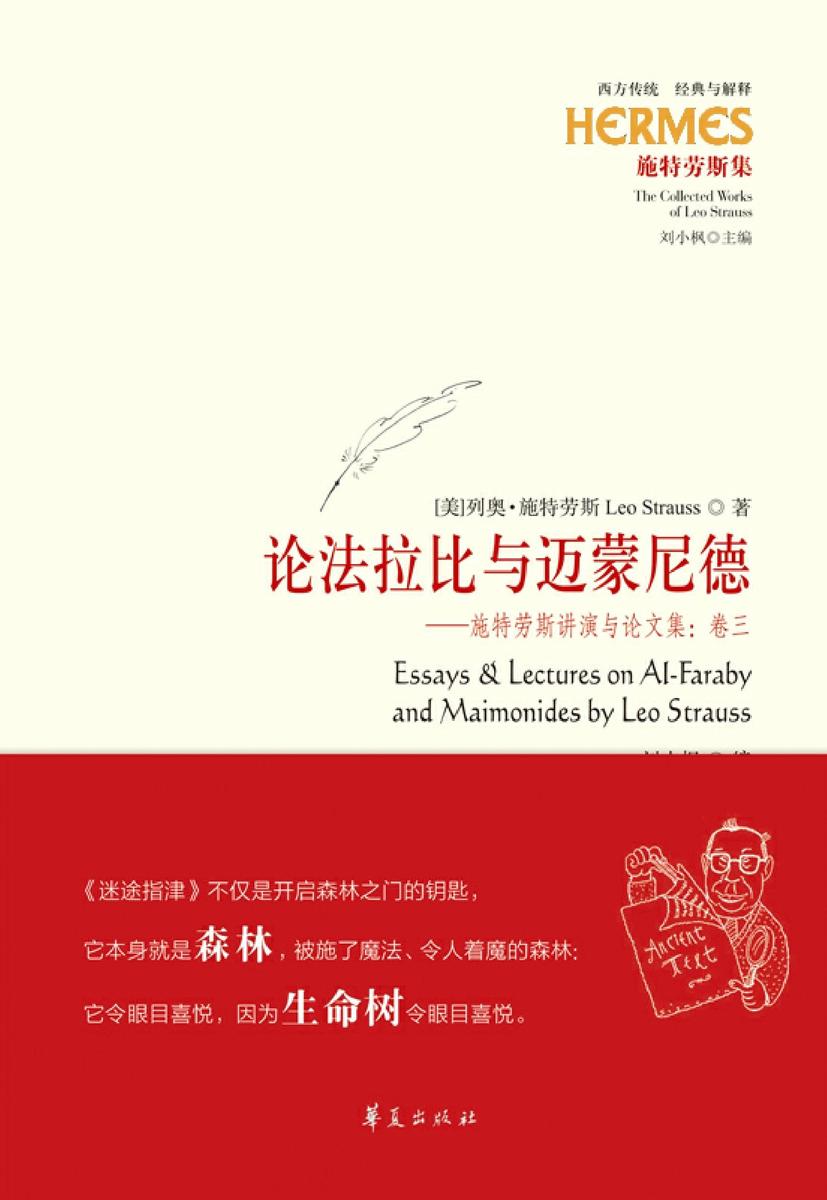
论法拉比与迈蒙尼德:施特劳斯讲演与论文集.卷三
¥47.50
施特劳斯重新发现并发皇了中古阿拉伯、犹太哲人对柏拉图哲学的理解,在他的著述和文集中,伊斯兰哲人法拉比、犹太哲人迈蒙尼德的身影频频出现。施特劳斯认识到二人精微高妙的隐微?显白写作艺术,将他们归“柏拉图式政治哲人”的行列:经由法拉比,他洞察到哲人所传递的“匿名的真理”;经由迈蒙尼德,他辨识出律法与哲学间不可调和的冲突。 这部文集收了所有施特劳斯关于法拉比和迈蒙尼德的论文、讲演稿和书评,共十三篇,其中的一篇演讲稿和一篇残稿为首次整理刊布。全书收录文章按发表或写作时间先后为序。

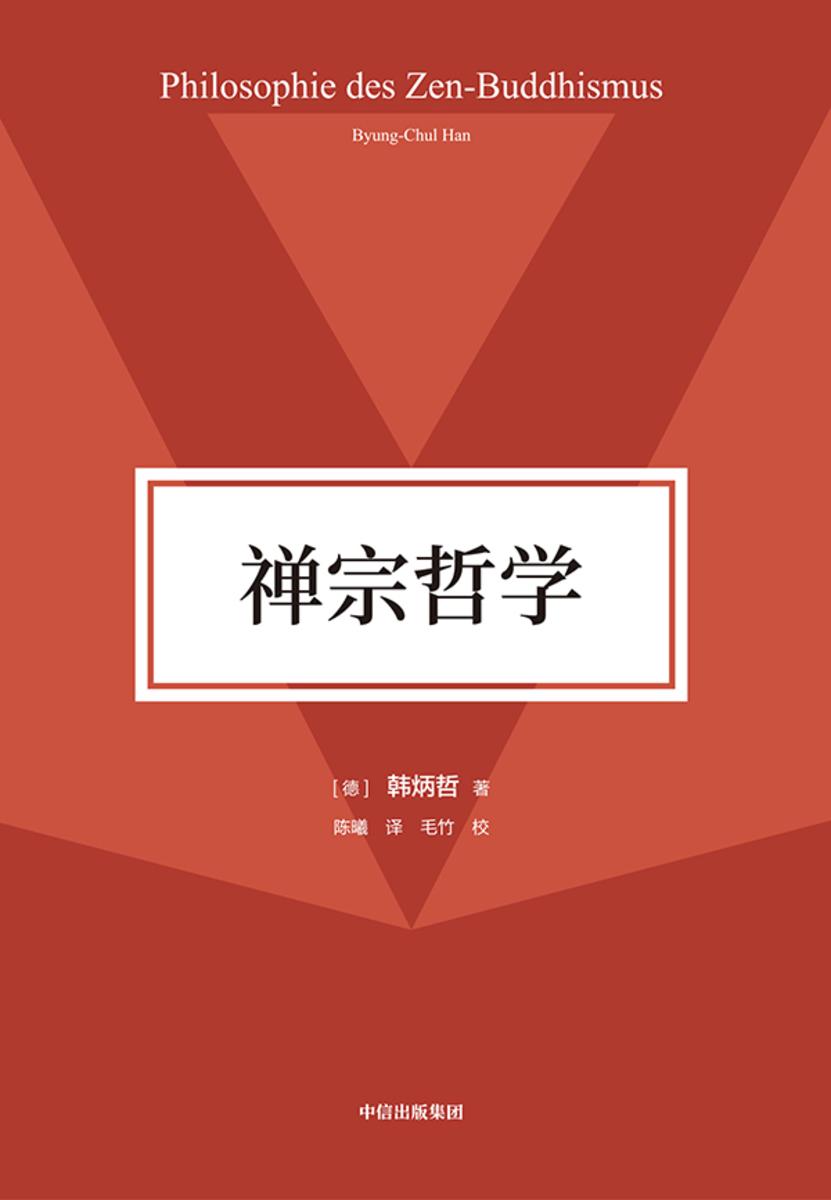
禅宗哲学
¥47.60
“虽非佛,然老松,忘我而立。” 禅宗重冥思,为大乘佛教流传于中国的一支宗派。神妙传奇的初祖菩提达摩以“教外别传,不立文字;直指人心,见性成佛”揭出禅宗的特质。禅宗对语言的怀疑,尤其对概念性思维的不信任,使其用词神秘而凝练。无言中折射着言说。 本书得益于对禅宗的哲思,以及由禅宗而来的哲思,通过概念将禅宗蕴含的哲学力量阐发出来。禅宗致力于表述的存在体验或意识体验,难以完全用概念式的语言表达出来。文字或可描述禅之静谧,禅之静谧却无须囿于文字。 本书采用比较的研究路,让柏拉图、莱布尼茨、费希特、黑格尔、尼采和海德格尔等人的哲学,与禅宗思想的不同面向之间行碰撞。行文中多有俳句穿插其间。俳句呼应哲思,铺垫相应文段的语境氛围,读者诸君不妨将它看作衬托画作的画框。 -------------------- 韩炳哲作品(第2辑) 《山寨:中国式解构》(2023年1月出版) Shanzhai. Dekonstruktion auf Chinesisch. 《超文化:文化与全球化》(2023年1月出版) Hyperkulturalität. Kultur und Globalisierung. 《妥协社会:今日之痛》(2023年1月出版) Palliativgesellschaft. Schmerz heute. 《不在场:东亚文化与哲学》(2023年7月出版) Abwesen. Zur Kultur und Philosophie des Fernen Ostens. 《禅宗哲学》(2023年8月出版) Philosophie des Zen-Buddhismus. 《什么是权力?》(2023年7月出版) Was ist Macht? 《仪式的消失:当下的世界》(2023年8月出版) Vom Verschwinden der Rituale.Eine Topologie der Gegenwart. 《资本主义与死亡驱力》(2023年8月出版) Kapitalismus und Todestrieb. 《沉思的生活,或无所事事》(2023年7月出版) Vita contemplativa.oder von der Untätigkeit. -------------------- 韩炳哲作品(第3辑) 《大地颂歌:花园之旅》(2024年1月即将出版) Lob der Erde. Eine Reise in den Garten. 《时间的香气:驻留的艺术》(2024年1月即将出版) Duft der Zeit. Ein philosophischer Essay zur Kunst des Verweilens. 《叙事的危机》(2024年1月即将出版) Die Krise der Narration.


周易易读
¥47.60
《周易》居于“群经之 首”,是经学的核心,其思想精神已融入中华民族的人文心理和价值观念之中,成为中华民族精神的重要组成部分。本书以深入浅出的方式介绍了《周易》的起源、发展以及在历史、文化、科学等方面的应用和影响,并对六十四卦的卦辞、爻辞进行了详细的解读。 · 从基础概念讲起,梳理《易经》/《易》/《周易》等易混淆概念,解释经、传,八卦、六十四卦,挂辞、爻辞的定义及之间的关系。 · 介绍与《易经》相关的中国古典传统朴素唯物主义哲学基本知识,如气一元论的世界观。 · 简要介绍卜筮、算卦、解卦的方法。 · 详细解读六十四卦卦意、卦辞,逐句解读爻辞,阐述六十四卦之间的关系,论述其中蕴含的中国传统文化思想。 · 结尾附文言、系辞、说卦、序卦、杂卦原文。

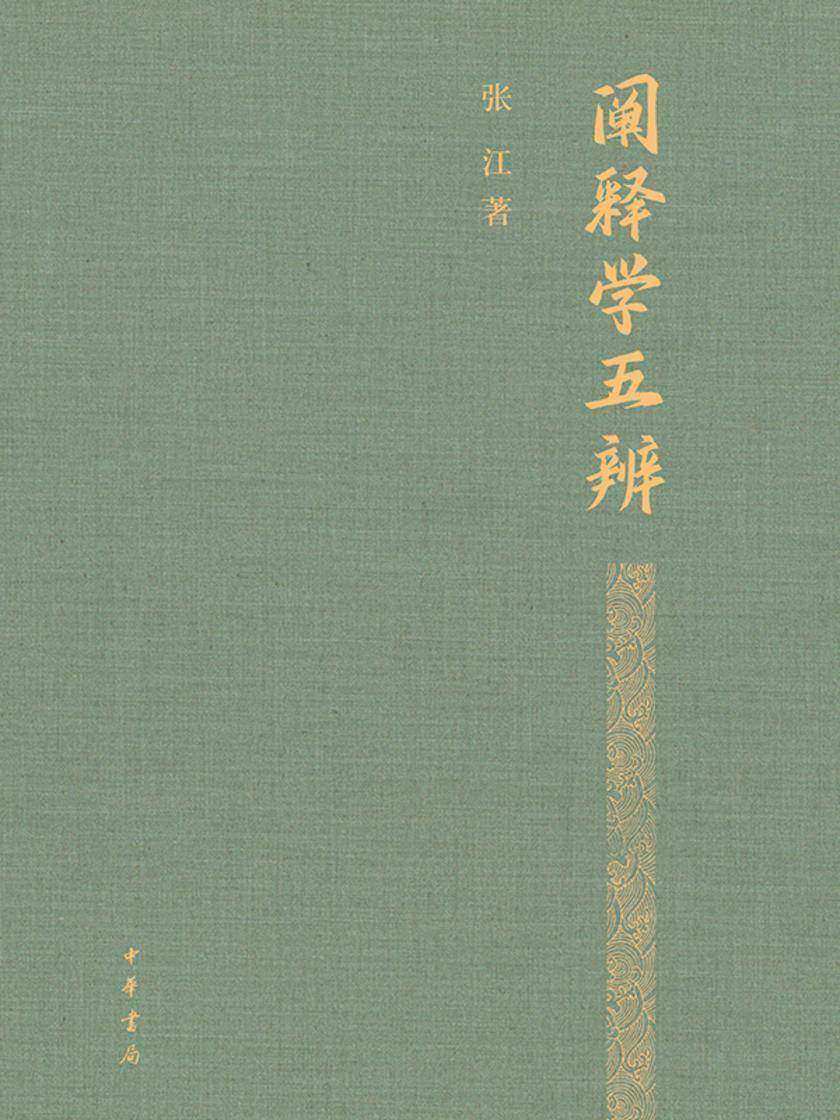
阐释学五辨(精) 中华书局出品
¥47.60
《阐释学五辨》由序言和正文阐诠辨、解释辨、理性辨、衍生辨、通达辨以及附录《当代中国阐释学建构若干重大问题》、《训诂与阐释》、《“训诂阐释学”构想》组成。其中阐诠辨、解释辨是解决阐释为何物的问题,指出命题是阐释,是放的对话和协商;理性辨指出阐释是理性的行为;衍生辨指出阐释是意义衍生而非固守文本;通达辨主要解决阐释的目的和标准问题。

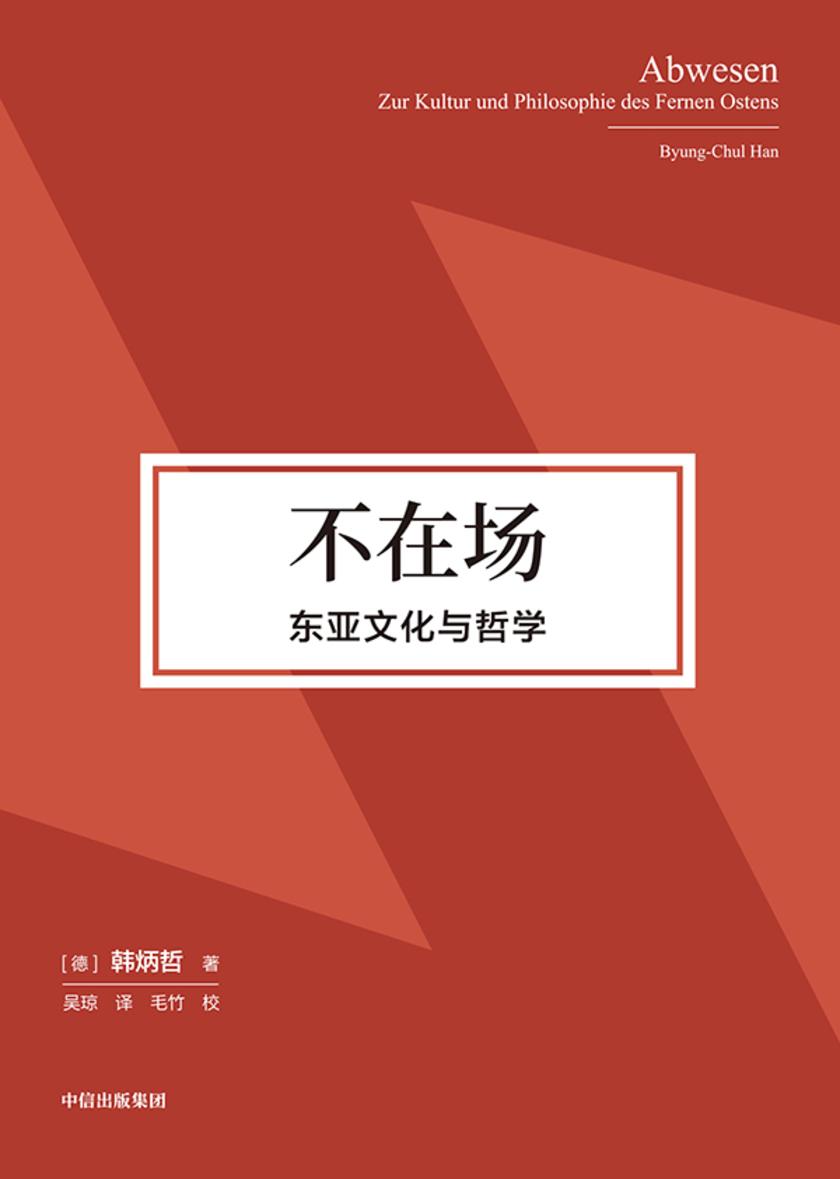
不在场:东亚文化与哲学
¥47.60
西方文化遵循的是本质,而本书为您介绍的是一种“陌生的文化”,一种“非本质/不在场的文化”。 在西方,陌生者在很长一段时间里都是被全力排除或强制利用的对象,它未曾现身于本己的内在之中。那么如今呢?如今还有陌生者吗?现在人们乐于相信,大家基本上都一样。如此一来,陌生者就再次从本己的内在之中消失了。 东亚思想完全朝向内在。道则完全与世界的内在,与事物的“就是如此”,与此地此时融合在一起。在东亚的想象世界里,没有任何事物存在于世界的内在之外。如果说道避了确定与指称,那并不是它太高,而是因为它在流动,因为它像河流一样曲折蜿蜒。它描绘着事物的不断转化,描绘着世界的过程性。 与世界的关系并不是由作为与行动的决断、意识与反思的高光所决定。相反,人们通过退避到不在场,通过忘掉或清空自己而让它发生,就好像那明亮的房间,正是因为它的空,才有能力收很多的光。人们追求的不是果断的行动,而是随意与轻松。这大概就是与西方自由观念相对应的东亚自由观念。 -------------------- 韩炳哲作品(第2辑) 《山寨:中国式解构》(2023年1月出版) Shanzhai. Dekonstruktion auf Chinesisch. 《超文化:文化与全球化》(2023年1月出版) Hyperkulturalität. Kultur und Globalisierung. 《妥协社会:今日之痛》(2023年1月出版) Palliativgesellschaft. Schmerz heute. 《不在场:东亚文化与哲学》(2023年7月出版) Abwesen. Zur Kultur und Philosophie des Fernen Ostens. 《禅宗哲学》(2023年8月出版) Philosophie des Zen-Buddhismus. 《什么是权力?》(2023年7月出版) Was ist Macht? 《仪式的消失:当下的世界》(2023年8月出版) Vom Verschwinden der Rituale.Eine Topologie der Gegenwart. 《资本主义与死亡驱力》(2023年8月出版) Kapitalismus und Todestrieb. 《沉思的生活,或无所事事》(2023年7月出版) Vita contemplativa.oder von der Untätigkeit. 韩炳哲作品(第3辑) 《大地颂歌:花园之旅》(2024年1月即将出版) Lob der Erde. Eine Reise in den Garten. 《时间的香气:驻留的艺术》(2024年1月即将出版) Duft der Zeit. Ein philosophischer Essay zur Kunst des Verweilens. 《叙事的危机》(2024年1月即将出版) Die Krise der Narration.

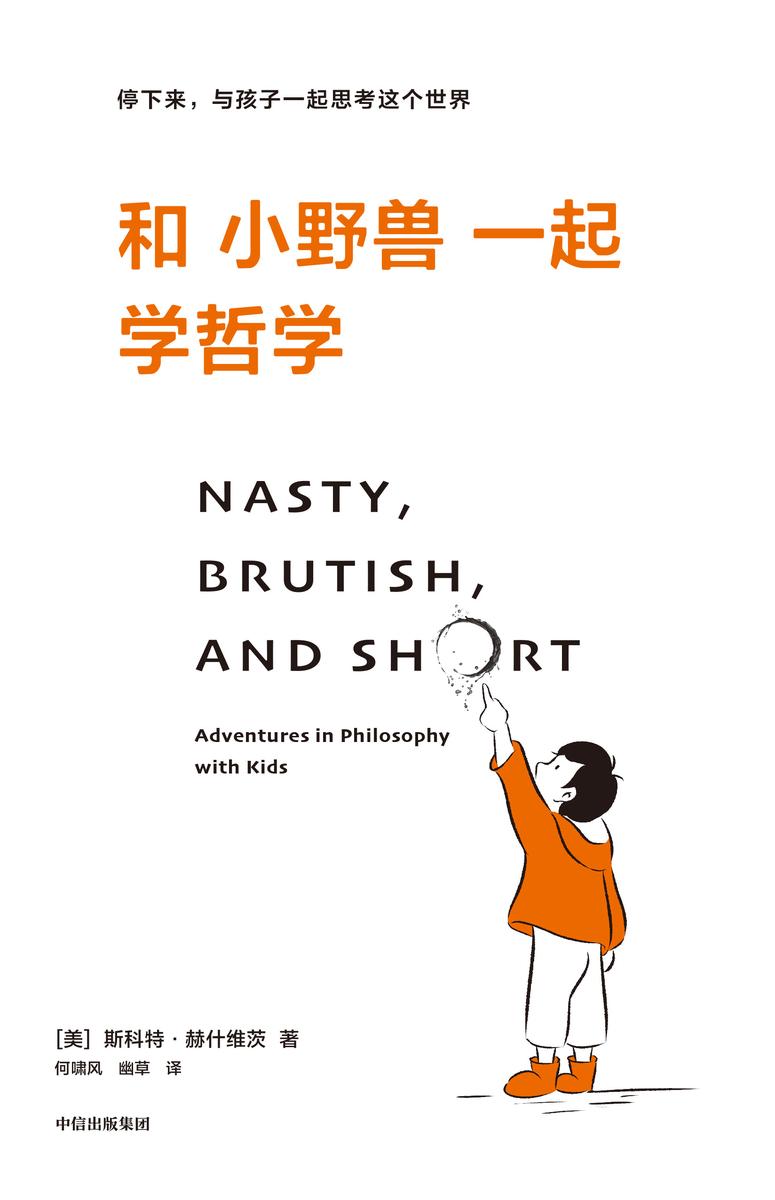
和小野兽一起学哲学
¥47.60
我为什么是我?宇宙有尽头吗?为什么语言能伤人? 撒谎一定是不对的吗? 孩子的脑袋瓜里装满了各种各样的问题。与拘谨的成年人不同,他们不在乎问题是否合适或愚蠢,而常常会质疑大人习以为常的事情,总想看到事物背后隐藏的奥秘,试图弄清楚这个世界的运作方式——他们是天生的哲学家。 像所有父母一样,赫什维茨总是被他的两个孩子——雷克斯和汉克问个不停,他发现孩子们的问题看似简单,却很重要,蕴含着哲学意义,他认真倾听并加与孩子们的对话中。他们先尝试理解惩罚、权利、权威、语言这样的道德话题,继而又探讨了性别、责任、意识、宇宙这样关乎自我和世界的话题。 在这个过程中,赫什维茨不仅观察和参与了孩子们的成长经历,还得以重新审视曾经思考过的哲学议题,围绕与孩童成长、人的心智有关的12个主题,行了多角度的哲学思考,并借助古今哲学家的思想资源,层层剖问题的核心,逼近事物的本质。 赫什维茨邀请我们加这场节奏欢快的旅程,孩子们——那些经常把自己弄得脏兮兮的小野兽,是这条哲学探索之路上我们最好的同伴。哲学不是高高在上的教导,与孩子的对话是重思哲学问题的契机,也是大人与孩子生命共同成长的始。

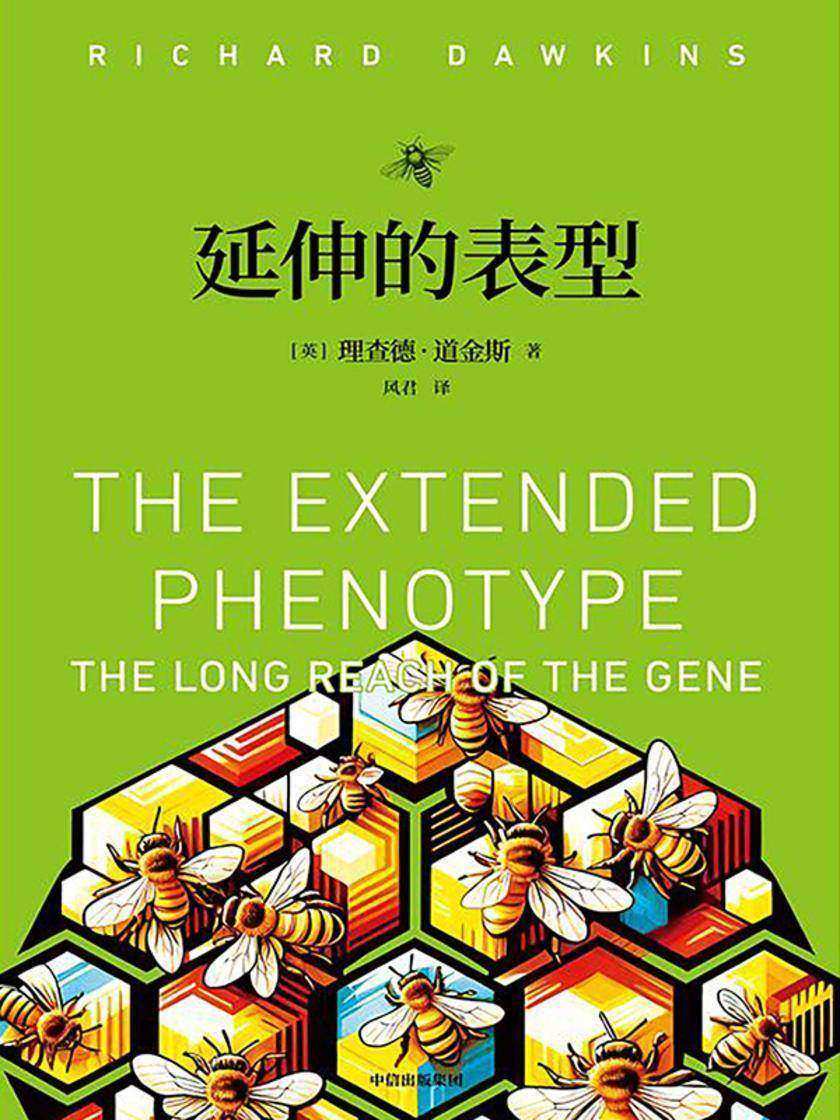
延伸的表型
¥47.60
《延伸的表型》是英国著名演化生物学家理查德· 道金斯经典作品,是其代表作《自私的基因》的续篇。 道金斯在书中回应了学界对《自私的基因》中各理论的批评,澄清了诸多误解,并扩展了基因的表型效应的范围:表型不再只是基因所在躯体的可见特征,它可延伸至更广阔的环境中,甚至包括其他生物体的特征。这种理论被道金斯称为“延伸的表型”,并早已被证明是非常有影响力的一种基因解读方法,为我们理解演化和自然世界提供了独特视角。 道金斯通过严谨的论证与生动的思想实验,通过对基因决定论、基因选择论、复制因子、越轨基因、修饰基因、自私的基因、个体适合度等概念的探讨,对共同演化、生存竞争 、寄生虫对宿主的操纵、生物对无生命世界的操纵等现象的分析,深入地阐述了“延伸的表型”的理念,以及到底什么是基因的表型效应,充分讨论了关于“选择单位”的争论,引领读者以一种不同的方式来看待动物及其行为,理解演化和自然世界。 这本书论述严谨扎实,见解独到深刻,思路清晰,语言流畅,兼具一 定的学术深度与可读性,与《自私的基因》《盲眼钟表匠》一起,被视为道金斯“遗传学三部曲”。

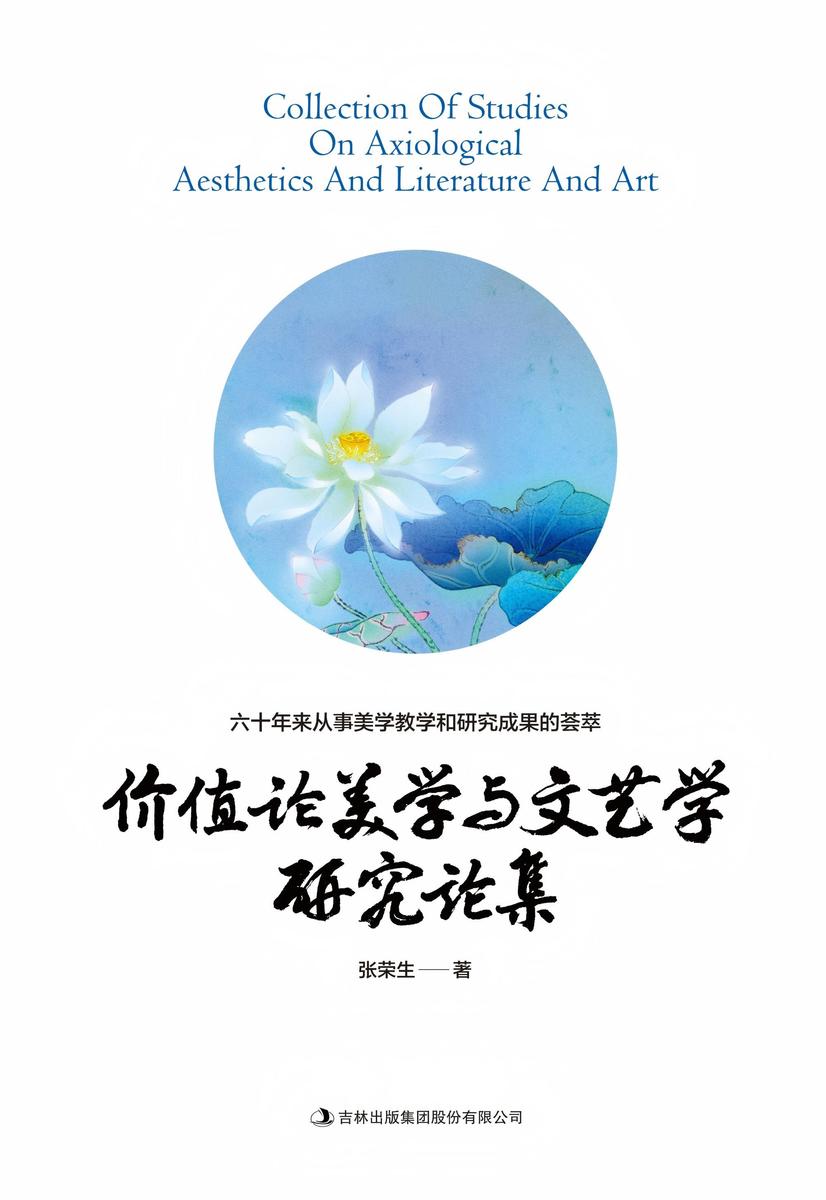
价值论美学与文艺学研究论集
¥47.60
美是一种抽象的理念,多少年一直困扰着无数学人,大家莫衷一是,不能取得共识,产生了诸多理论体系,比如传统的认识论美学以及开辟了美学研究新途径的价值论美学。但是价值论派的学者们却误将认识论美学中的核心范畴的美引进了价值论美学的领域。笔者认为,作为认识论美学核心范畴的美,跟价值论美学并无关联,并在书中分为三大模块对其进行了论述。

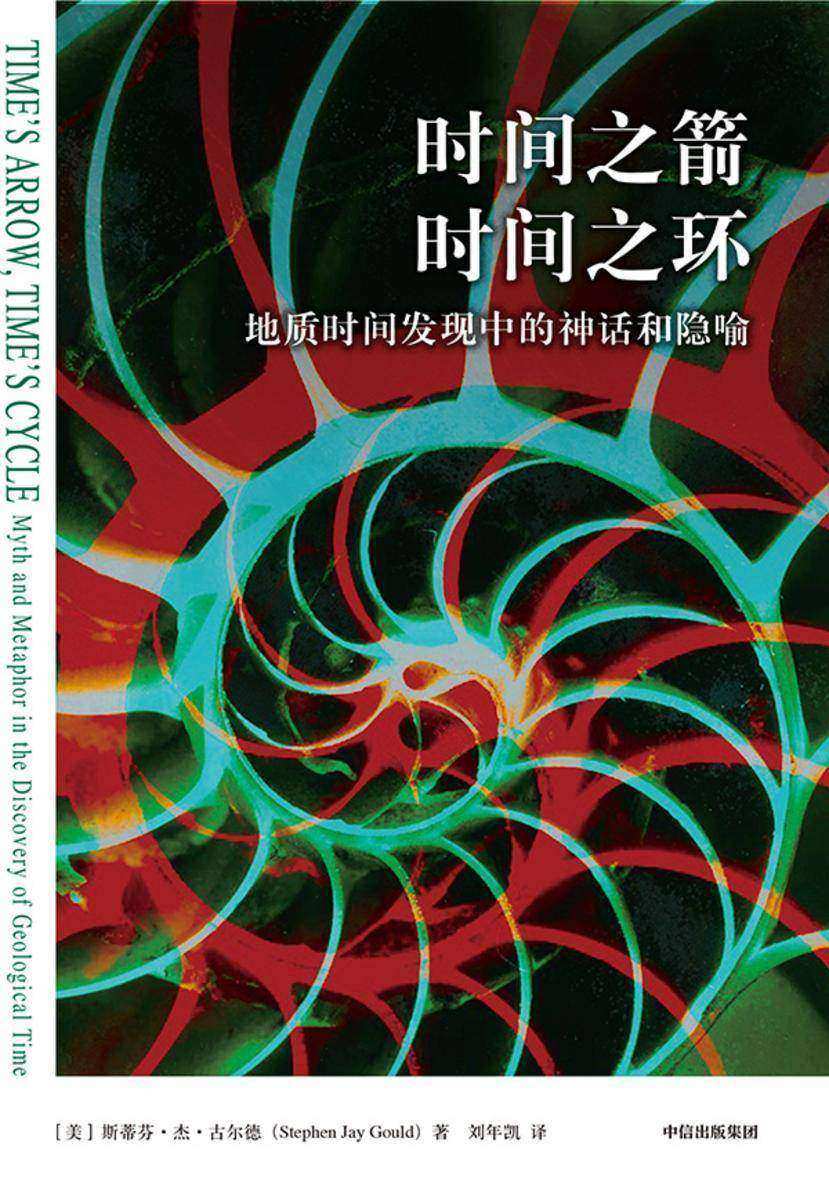
时间之箭,时间之环:地质时间发现中的神话和隐喻
¥47.60
本书探讨的主题是地质学对人类思想的重大贡献——“深时”的发现及其理论渊源。 地球历史是一段古老、浩瀚而我们只能通过隐喻来理解的历史。本书围绕“时间之箭”(叙事历史,方向性和独特性)和“时间之环”(内在规律,周期和重复)的二分法,结合图像学的阐释,重新审视和解读了“深时”思想在西方地质学领域三位先驱及其经典著作——托马斯·伯内特的《地球的神圣理论》、詹姆斯·赫顿的《地球理论》和查尔斯·莱尔的《地质学原理》,由此重构了地球历史的发展脉络。 -------------------- 关联书目 《科学哲学导论》(第四版) Philosophy of Science,Fourth Edition 《技术哲学导论》 Philosophy of Technology 《观念的发明者》(第三版) Inventors of Ideas,Third Edition 《物理学的概念》(第五版) Physics:concepts and connections,Fourth Edition 《时间之箭,时间之环》 Time’s Arrow,Time’s Cycle 《现代宇宙中的空间与时间》 Space and Time in the Modern Universe 《牛顿传》 The Life of Isaac Newton 《瓦特传》 The Life and Legend of James Watt

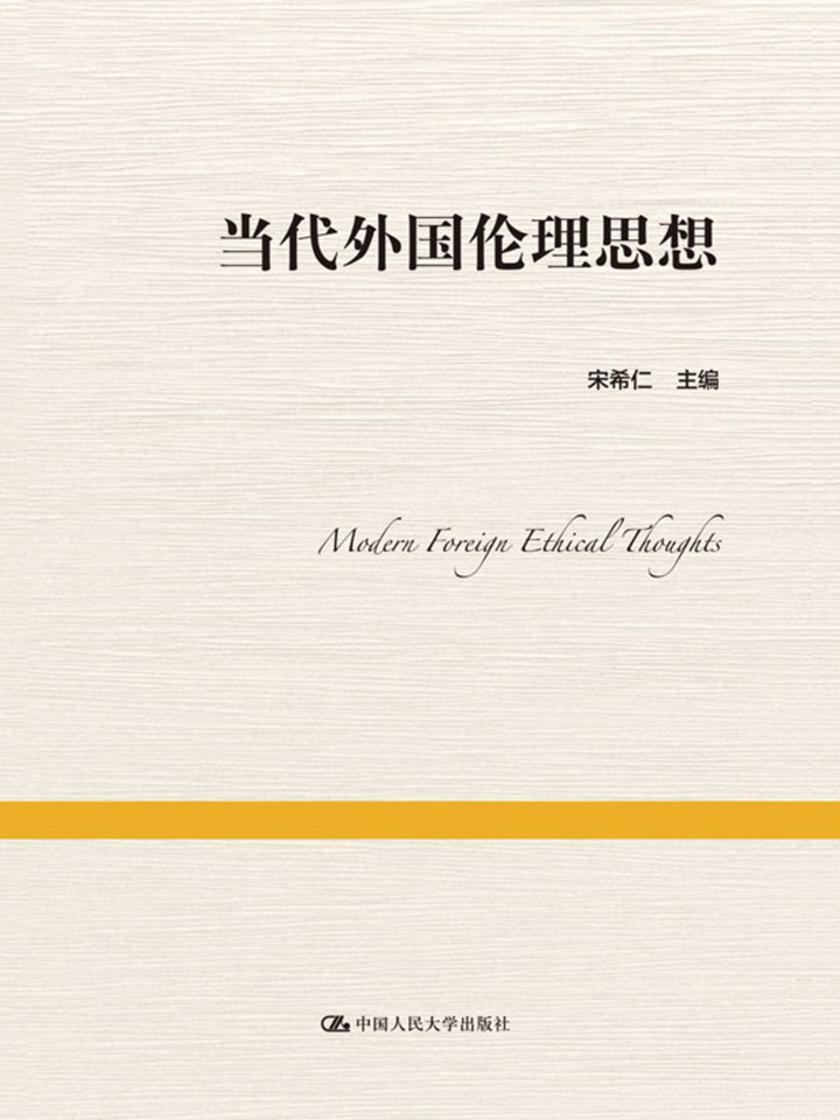
当代外国伦理思想
¥47.88
《当代外国伦理思想》对日本、印度、韩国、朝鲜、新加坡、英国、法国、美国、德国,以及从苏联到独联体的当代伦理思想分别作了比较系统的研究和阐述。本书是按东西方顺序分章的,各国按头字笔画排列先后。这样编章,按国家和地区分别阐述当代外国伦理思想,与按思潮和学派阐述外国伦理思想的著作不同,它可以使读者集中、完整地了解和认识有关国家和地区的当代伦理思想,为伦理学研究者行东西方伦理思想的比较研究,提供难得的现成资料和研究成果。

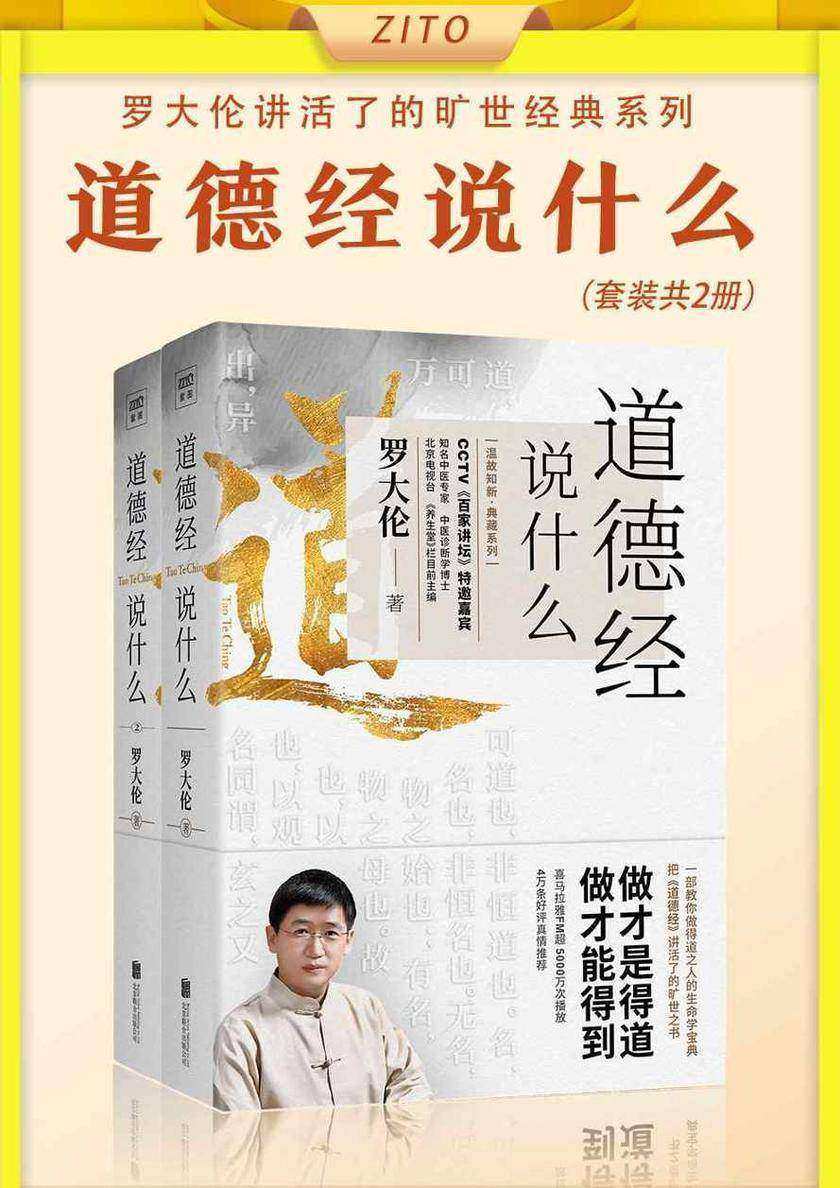
罗大伦讲活了的旷世经典系列:道德经说什么(全2册)
¥47.90
在生活中,如果您经常陷事业发展与身体健康的取舍当中,身心不和谐,您可以读读这套《道德经说什么》,这套书深解读了我们在工作与生活中常见的身心问题成因及解决方法,比如事业发展与身体健康的取舍、人际关系的圆融相处之道、领导的用人观、做事态度与成事的关系、如何顺应天道做事赢得众人的支持,等等。凡此种种,我们都可以从《道德经说什么》这套书里找到解决之道。 知名中医专家、中医诊断学博士罗大伦结合《道德经》中流传千年的智慧,助您解决生活中的常见的各种实际问题。教您把自己的位置放低,把心放空,把名利看轻,把事做成,把身体照顾好。这是一套人人看得懂、用得上的《道德经》经典解读本。




 购物车
购物车 个人中心
个人中心



